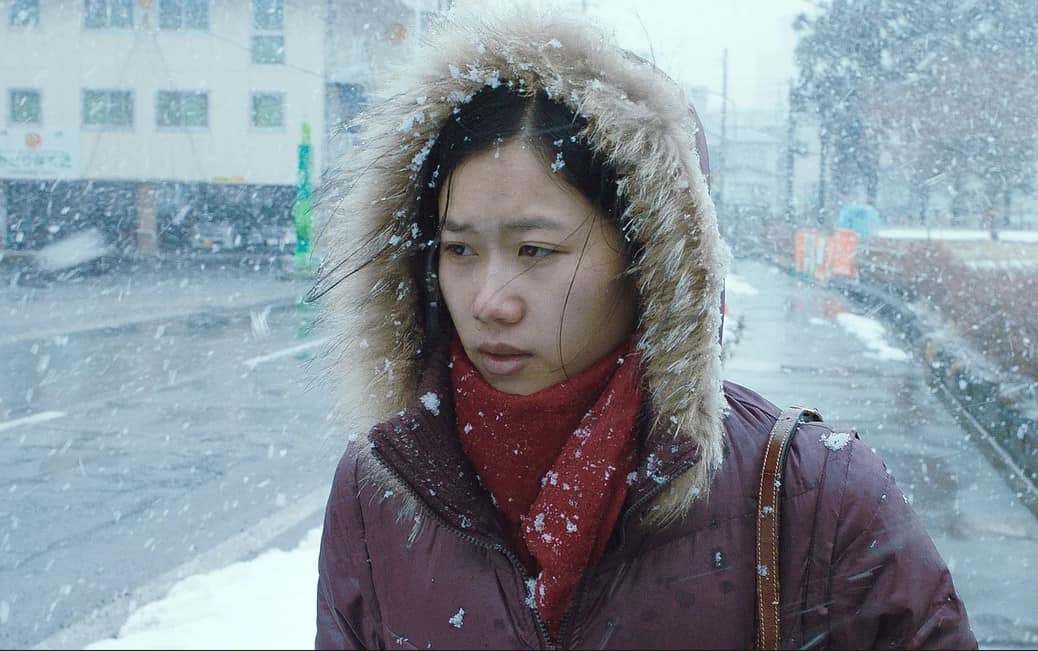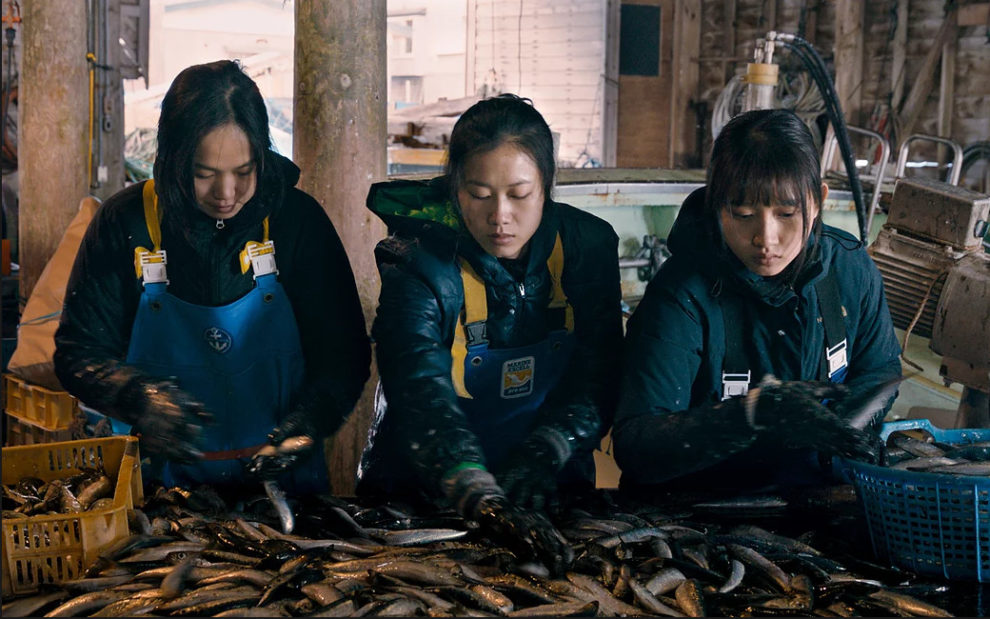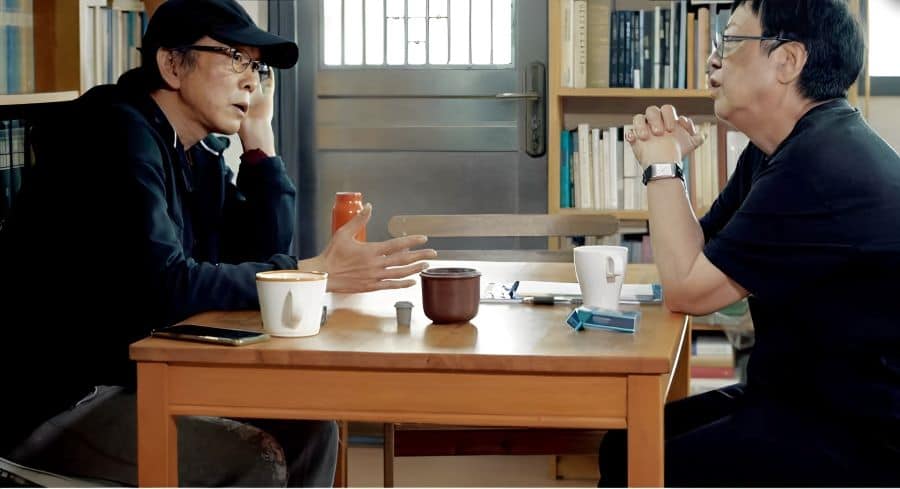The duo of director Akio Fujimoto and producer Kazutaka Watanabe seem to have made their cinematic goal to deal with true stories of immigrants living and working in Japan, something they managed to do with a certain prowess in “Passage of Life“, a film that won two awards in the Asian Future Section at TIFF 2017. After a documentary short that dealt with the Myanmar indigenous Zomi people (“Bleached Bones Avenue“) the two of them return to their favorite theme with “Along the Sea”, a co-production between Japan and Vietnam, which deals with the lives of Vietnamese immigrants in the country.
Along the Sea screened at Tokyo International Film Festival and is distributed by Asian Shadows

Phuong, An, and Nhu are Vietnamese women in their early 20s, who have just managed to escape from a job of being “technical trainees”, under very harsh conditions, with their then boss even keeping their passports. The are now helped by a Vietnamese broker, who brings them to a remote seaside town where they are to work in a small fish industry. The circumstances are again harsh, with the girls having to sleep together in a room on the floor, with the heat coming only from a few space heaters. Despite the work being back-breaking, the three of them are more content than in their previous work, since they enjoy more freedom and a much better salary. When Phuong, however, falls sick, they have to face a system that seems rigged against them.
Akio Fujimoto directs a film that highlights the issues illegal immigrants face in Japan in the most realistic fashion, with the narrative following, essentially, a documentary-like path, both in terms of context and stylistically. In that fashion, Kentaro Kishi's camera follows the characters and particularly the protagonists from a very close distance, occasionally through intense close-ups, in an approach that makes the viewer think that he is actually among them, rather than being just a spectator.
In terms of narrative, the film deals with a number of aspects of the everyday lives of immigrants in the country, and particularly women, very rarely depicted on the big screen. The way they their Japanese employers treat them, essentially considering them something very close to slaves, the issues they face for not speaking the language properly or at all, the fact that they cannot receive medical care since they do not have legal permits to work and live in the country, and the inevitable dealing with people who forge papers for exuberant fees are all highlighted here in every detail and with utmost realism.
The comment that emerges from this approach, and particularly through Phuong's character, is how lost and desperate these people are, and the ways a system that works outside of the law has been placed, essentially just to exploit their need to find money outside their countries. Fujimoto makes a point of showing that the employees in the hospitals and the doctors are not to be blamed, since they just do their jobs and follow the rules, but the fact remains, that, in the end, they are also part of the problem, even without their knowledge or will. That this system is actually one that works on an international level, stresses the fact even more.

This intense realism is what gives the movie its dramatic premises, again with Phuong being in the center of it, and the events that close the story, and particularly her final decision, intensifying this sense to the highest degree. Hoang Phuong in the part manages to embody all the aforementioned elements with a terrific performance, as she manages to communicate all her inner and physical struggle quite convincingly, despite her laconic approach to the role. Particularly the scenes where she is walking by herself, essentially lost, both mentally and actually, are exceptional, as they also induce the narrative with road movie elements, although, this time, the road trip is actually an odyssey. Ann Huynh Tuyet as An and Nhu Quynh Nguyen Linh as Nhu act in the same lines, equally convincingly, although in smaller parts.
Fujimoto's own editing induces the film with a relatively slow pace, that also mirrors the cold and occasionally snowed setting, in a style that moves somewhere between the art-house and the documentary. At 88 minutes, the film is stripped from any kind of unnecessary elements of beautification. Kentaro Kishi presents some images of beauty, particularly in the snow, but Fujimoto does not allow the beauty to take over the narrative even for a moment, as the harsh realism takes over immediately once more. Lastly, the well-placed ending, highlights the excellent work done in both editing and direction.
“Along the Sea” is a realistic, meaningful, and at the same time strangely beautiful film that emerges as one of the best of the year.
















